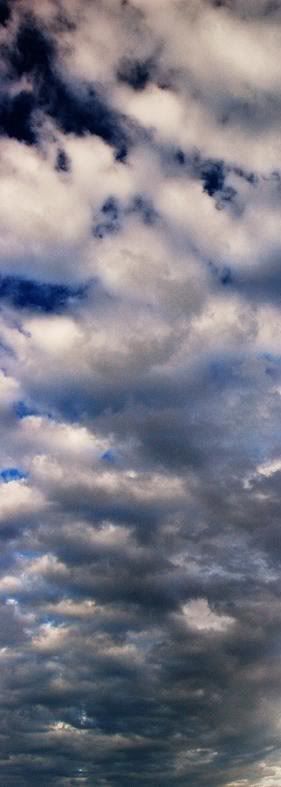Clouds are innocuous things to look upon, omnipresent, mundane, worth barely a mention. The sky is there every day and night. Weather often serves as a filler in conversations, a last resort. And yet, many seem to have a propensity for sunsets and sunrises and dramatic summer cumulonimbuses. Never mind cliche. “Let’s enjoy nature,” people say, and head out to the yard or the lake to watch the sunset. There is allure, clearly, but what?

Some time ago, when I had been maintaining a personal blog, I discovered a little link-share page. It was called Skywatch Friday, and the concept was very simple. Every Friday, you blogged. You posted a picture of sky. You added your link to the Skywatch page, and your thumbnail was displayed for all to see. Here’s the sky in Sweden, the sky in Melbourne, the sky in Iowa. For three years, I browsed others’, posted my own.
Inane? Perhaps. But what you learned was how to see.
One needs be neither a meteorologist nor an astronomer to  find interest in studying the sky.
A great number of posts contained the classic something-silhouetted-against-a-sunset shot, or the picture-of-buildings-with-a-sliver-of-sky-in-the-back kind of deal, perhaps. Some displayed particularly striking and unusual atmospheric conditions. One can take a picture for the sake of taking one to post (it boosts my traffic!), or because it seems aesthetically pleasing, or because there is a rare phenomenon that musn’t be missed. These are simple. Click, done. But then there are the ones that physically, literally, do not show anything of particular interest. Yet they manage to be more than aesthetically pleasing- meaningful, thought-provoking.
Interpretation is the viewer’s task.
I’ve recently just read Annie Dillard’s Seeing, an essay on just that. Bah, you think. Everyone sees. We’re not blind. The truth is objective. It is out there. Is that really the case? In a way, but not quite. We see, she seems to say, what we expect to see. We do not see what we do are not searching for. Those well-versed in their particular areas of knowledge will always see more, know more about their own area than outsiders do.
The point is that I just don’t know what the lover knows; I just can’t see the artificial obvious that those in the know construct. The herpetologist asks the native, “Are there snakes in that ravine?” “Nosir.” And the herpetologist comes home with yessir, three bags full.
Although, what we see is certainly not set in stone. One only has to look. Possess the desire to know, to see, and it will happen. I am not suggesting the sky is full of rich, life-fulfilling truths, necessarily, only that it is a good place to begin. We give such simple things not a second glance, not a second thought. Can it not be that we are missing something?


Leave a Reply
1 Comment on "Watching the Sky"